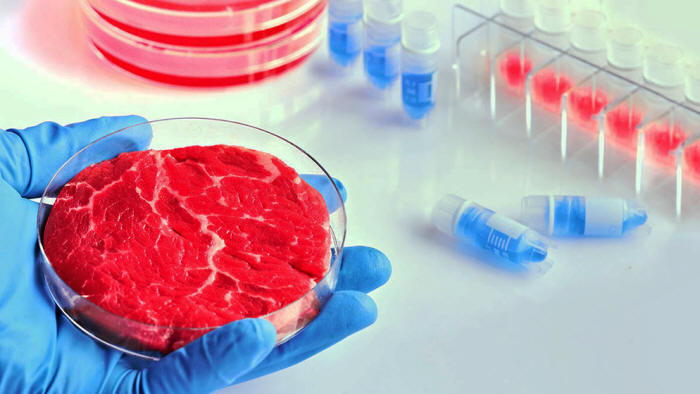|
Announced by Italian Agriculture Minister Francesco Lollobrigida during a recent event in Kilkenny, Ireland, the move is based on the precautionary principle and aims to ensure high quality food for all, rather than just an elite few.
While laboratory-grown meat is promoted as environmentally friendly,
Stating that the Italian government wants to create an example on how to regulate synthetic food products, Agriculture Minister Francesco Lollobrigida insists,
Describing
laboratory-grown meat as "suicide" for somewhere like Italy, he says
the Italian government is campaigning to get its country's food
added to UNESCO's Intangible Cultural Heritage List.
The production of foods
in bioreactors would not only have a negative environmental impact,
he argues, but it could also pose a risk to human health.
While synthetic meat is promoted as being environmentally friendly, on the assumption that its production would involve less land, water, and greenhouse gases than raising cattle, recent research ,
In a study conducted at the University of California, Davis, researchers found that, based on current and near-term production methods, scaling up the manufacture of laboratory-grown meat would be highly energy intensive and have a global warming potential up to 25 times greater than the average for retail beef.
Given this finding it is perhaps ironic that Bill Gates is one of the biggest backers of laboratory-grown meat.
Frequently to be heard endorsing warnings on the dangers of climate change, Gates has argued that rich countries should shift entirely to synthetic beef.
Cynics might consider his backing of such products to be less about averting global warming and more about securing patents and profits. Viewed in this light, Gates' new status as America's biggest private owner of farmland raises all manner of questions.
Thus far only the United States and Singapore have approved any laboratory-grown meat for human consumption.
As observers have noted, however, if clearance is gained in the European Union, the bloc's laws on free movement of goods and services could essentially prevent Italy from enforcing any national ban on these products.
Inspired by the Mediterranean diet
Several Italian government ministers have cited their country's famous Mediterranean diet as the inspiration for the new bill.
Arguably the most studied diet of the past seventy years, the key components on which it has historically been based include fruit and vegetables in large quantities, whole grains, legumes and nuts, olive oil, yogurt, moderate amounts of cheese, a maximum of around four eggs per week, with small amounts of meat, fish, and wine.
Numerous studies have linked the Mediterranean diet to improved health and greater longevity, as well as the prevention of diabetes, cardiovascular diseases, cancer, Alzheimer's disease, and other chronic diseases.
In a keynote speech given in October 2014 in the historic town of Barletta in Southern Italy, Dr. Matthias Rath laid out the cornerstones of a new, preventive approach to healthcare.
Describing how micronutrient deficiency is the primary cause of chronic disease, he pointed out that the great majority of the substances we require from our daily diets are contained in the fruits, vegetables, and plants that grow in our gardens and farms.
This understanding, he explained, paves the way towards the natural control of today's most common diseases.
Scientific research is increasingly confirming the health benefits of naturally produced organic food.
At the same time,
Laboratory-grown meat and other ultra-processed foods are,
With it becoming ever more apparent that the modern-day multinational food industry should be seen as part of the 'business with disease,' humanity consumes these dangerous new synthetic food products at its peril...
|


